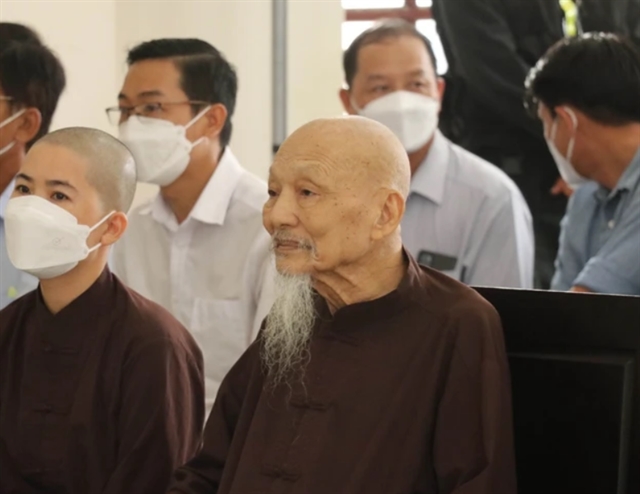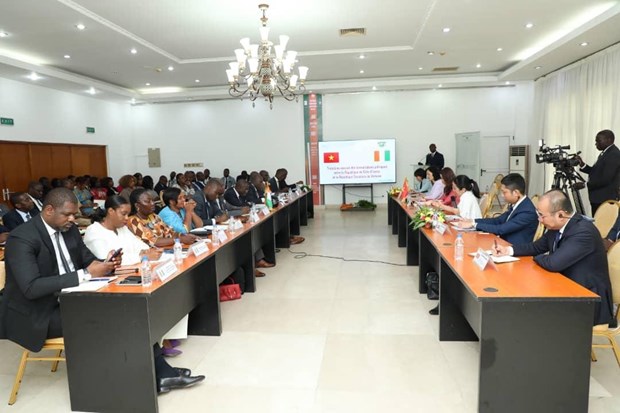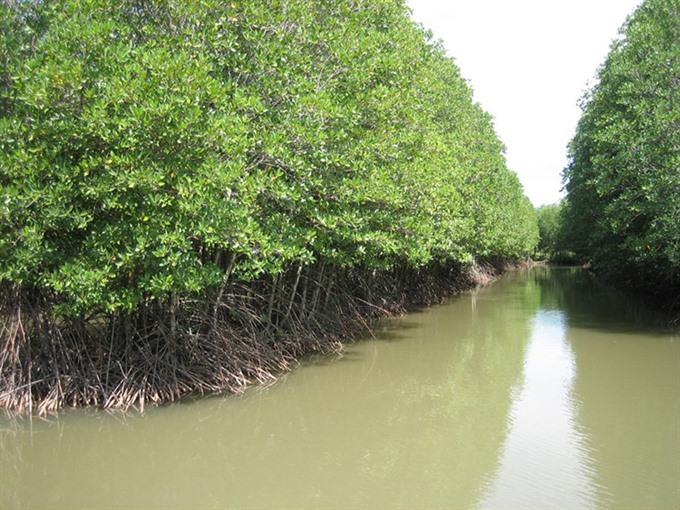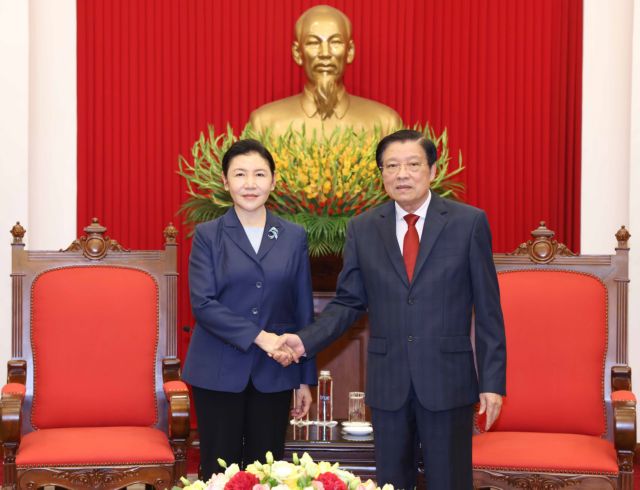 Society
Society

The second phase of the Mangroves and Markets Project (MAM) 2016 - 2020 kicked off in the Mekong Delta city of Cần Thơ yesterday after receiving more donations from the German Federal Ministry of the Environment, Nature Conservation and Nuclear Safety.
 |
| Cần Thơ Mangrove Forest. - Photo univietravel.com |
CẦN THƠ – The second phase of the Mangroves and Markets Project (MAM) 2016 - 2020 has kicked off in the Mekong Delta city of Cần Thơ after receiving more donations from the German Federal Ministry of the Environment, Nature Conservation and Nuclear Safety.
The goal of the project is to help local shrimp farms become more profitable by protecting mangrove forests. This effort has enhanced profitability and sustainability while also increasing coastal resilience to climate change.
For 30 years, shrimp farming has been one of Việt Nam’s leading export-related activities, but it has also been the leading cause of mangrove loss. Given the country’s long, densely populated coastline, it has rendered the population vulnerable to tropical storms and rising sea levels.
The stage was set for the Mangroves and Markets project after the sustainability of the shrimp business and the conservation of mangroves were identified as national priorities.
“After three years of implementation, the skills of State staff have significantly improved; a supply chain in shrimp production has been set up; and policies have been applied for mangrove forest protection and shrimp production development. Earnings are also higher and farm production is now more effective,” Lê Văn Sử, deputy chairman of the Cà Mau People’s Committee, said during his speech at the kick-off ceremony for the project on Tuesday.
After the first phase of the project, around 800 households received NaturLand certification. The Cà Mau-based Minh Phú Company, the world’s second-largest shrimp exporter in terms of value, started to buy all the certified organic shrimp from farmers at a 5 - 10 per cent premium.
The company paid around VNĐ300 million (US$13,500) for forest environmental services conducted by 200 households and VNĐ600 million ($27, 000) to 500 households who had received NaturLand certificates in 2015.
Around 2,000 households were trained so they could receive certification in three areas: raising shrimp without chemicals or industrial feed; managing household waste; and forest protection.
The project also helped plant 80 ha of mangrove trees on farms that do not meet the 50 per cent criterion, and has organised farmers into groups that work towards achieving the goal jointly rather than individually.
Another 95 hectares of mangrove have been planted by local residents since the project began, while 12,600 hectares of land have been protected.
Shrimp farmers have also become more aware of organic production techniques and the need to preserve mangrove forests in their areas.
"Local farmers in the southernmost province of Cà Mau have been able to significantly increase their income. They receive higher prices for their organic shrimp, and are paid for their environmental services," Nguyễn Thị Bích Thủy, project manager, said.
In the second phase, three more seafood processing or export companies and more than 5,000 households will be invited to take part in the programme.
“The project hopes the government will issue a decision on payments for environmental services related to aquaculture,” she added. “This would help ensure that shrimp farming can be a sustainable activity amid climate-change challenges.”
Dr Andrew Wyatt, Mekong Delta programme manager, said: “The project will closely connect with others in the three Mekong Delta provinces of Cà Mau, Bến Tre and Trà Vinh, which contains 70 per cent of mangrove area in Việt Nam. It will also work with the $310 million World Bank-funded project, the ‘Mekong Delta Integrated Climate Resilience and Sustainable Livelihoods Project’.”
In the past, organic certification for shrimp farms in Việt Nam faced issues such as low prices, late payments and a lack of transparency that caused farmers to question the economic value of certification. But with the new model, these issues have all been resolved.
Cà Mau Province accounts for 28 per cent of national aquaculture and 50 per cent (80,000 ha) of national mangrove forests. Both officials and farmers believe the project has the potential to be a model for shrimp feeding and forest protection that others can emulate.
“In the near future, Cà Mau will take advantage of its areas of mangrove forest and shrimp production thanks to its recent decision, which has created a legal framework for shrimp production with international certification,” Dr Nguyễn Chí Thành, project advisor, said.
He said that only Cà Mau Province, of the total of 29 coastal provinces, had issued a co-operation policy among farmers, forest owners and enterprises as well as flexible financial systems to invest in the model.
By 2020, the province aims to have 40,000 hectares internationally certified for organic shrimp breeding. It expects that 60 per cent of its mangrove forest would be restored by that time.
The project, funded by the German Federal Ministry of the Environment, Nature Conservation and Nuclear Safety, was carried out by the International Union for Conservation of Nature (IUCN) and the Netherlands Development Organisation. -- VNS









